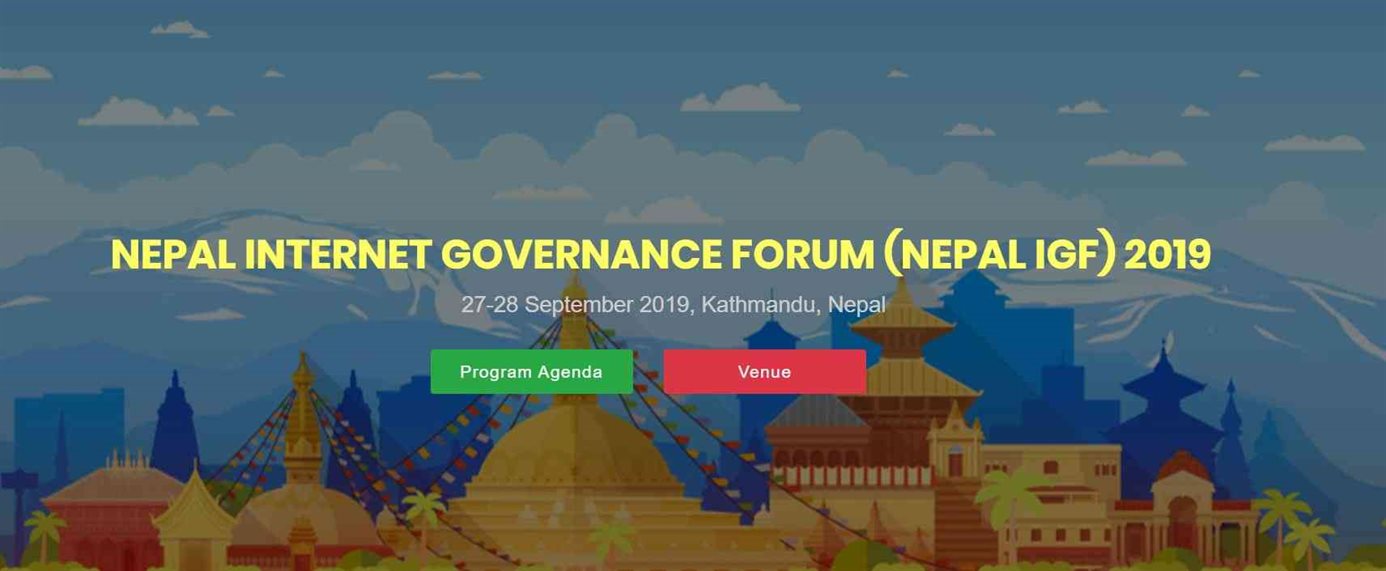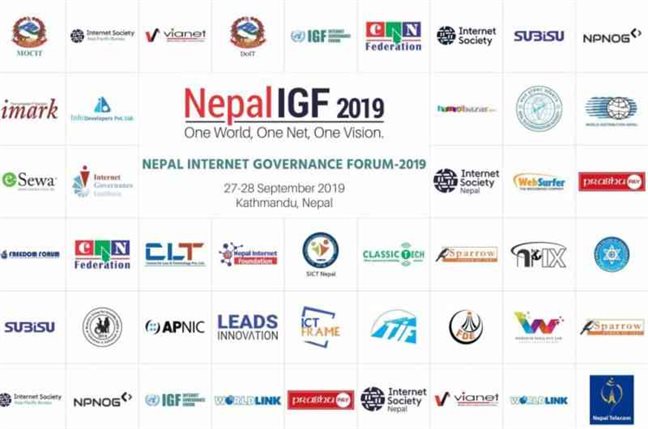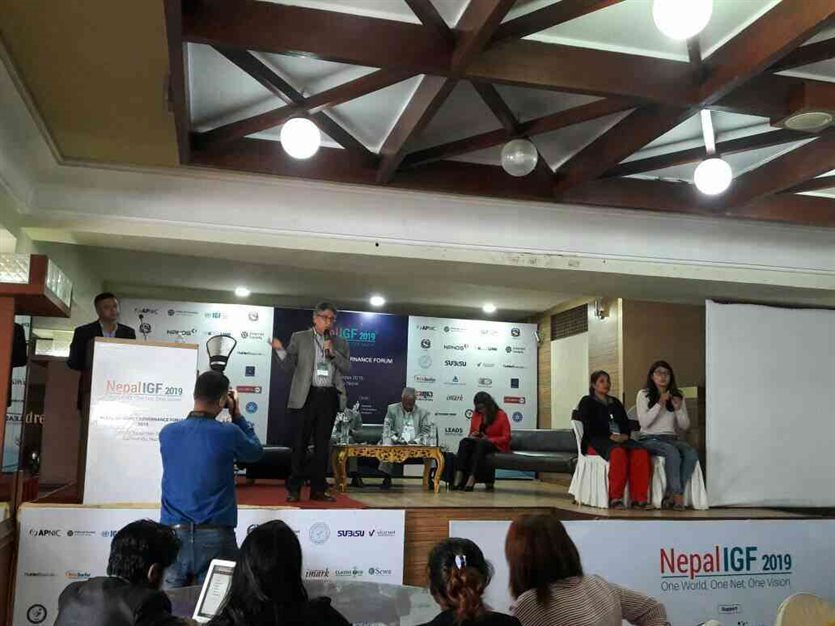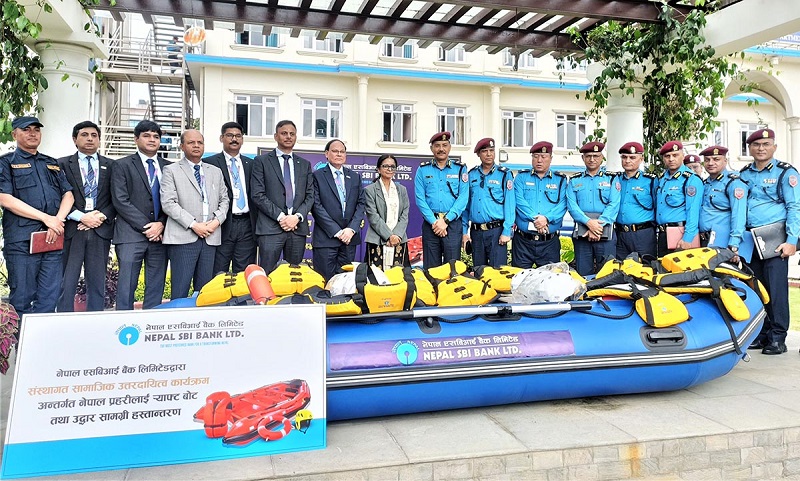Nepal IGF 2019 : One World, One Net, One Vision
September 28, 2019, Kathmandu
Nepal IGF 2019 (Nepal Internet Governance Forum 2019) is held on Indreni Foodland. It is the two days program from 27th to 28th September.

Nepal IGF is the multi-stakeholder steering group (MSG) of Nepal to provide an open platform for multi-stakeholders on issues of internet and governance. From 2007, the IGF has hosted several workshops on varieties of issues such as openness, security, diversity, access. As the internet has become an integral part of our life, it brings various social problems such as internet addiction, and the issues regarding privacy and security.
The program represented an individual from governments, the private sectors including the academic community on the discussion. The chairperson of MSG is Mr. Birendra Kumar Mishra from the Department of Information Technology. He discussed eight sectors and eighty Digital initiatives. Under the Digital Nepal framework, there are eight sectors – Digital foundation, agriculture, health, education, urban infrastructure, energy, tourism, and finance. For this connectivity is an integral part of all the development. The dimensions of connectivity are so wide. For the connectivity the government should practice:
- Broadband access should be reached.
- Meaningful internet activities should take place
- High-speed connectivity for government establishments
- Digital literacy training
- Take lead in 5G
- Make internet access a fundamental right for every citizen
The program was divided into three sessions, first was on the panel discussion on connecting unconnected, Impact of Social Media on Modern Journalism, third was on Internationalist on the Internet: Diversity and Representation.

UNCONNECTED: FOUNDATION OF DIGITAL NEPAL
The internet has an impact and can transform people’s lives and bring benefits in a great number of areas. As per the data, 53% of the world’s population is still offline. The majority lies in Africa and Asia. There are various reasons for not getting access to the internet because some live in remote or difficult areas to reach, someplace lacks technical infrastructures like electricity and transportation. Even the users are not using the internet in a meaningful way, as they lack digital literacy and limited awareness. Many are too poor to afford it. To increase the connectivity government and private agencies should work together to bring changes. The three key factors necessary for the connectivity are:
- Availability
- Accessibility
- Affordable
IMPACT OF SOCIAL MEDIA ON JOURNALISTIC PRACTICES
The panel discussion was held to discuss the impact of social media on journalistic practices. Questions like how does social media affect contemporary journalism was discussed by media intellectuals. Social media has challenged traditional journalism. As social media offers professionals and non-professionals journalist equal opportunities to create content and produce. Which both have negative and positive impacts on society.
The growing concerns of citizen journalism and practices of fake news and sensitive contents on media topics were addressed.
Internationalist on the internet: Diversity and Representation
This session had several discussions on protecting human rights online and issues of unequal access to the internet was discussed. This session highlighted the different intersection of the internet by including the perspectives of gender, sexuality queer rights, and disability. Various individuals from Body & data, a movement that integrates feminism, technology and internet rights brought issues of Nepal.






